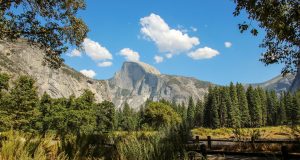CALIFORNIA — Head outdoors and enjoy some of the country’s most magical places — America’s national wildlife refuges offer unparalleled opportunities to experience the great outdoors and see a rich diversity of wildlife in beautiful natural settings.
If that wasn’t enticement enough, refuges that normally charge entrance fees will offer an additional incentive—free admission on these days in 2016:
- January 18 – Martin Luther King, Jr. Day
- February 13-15 – Presidents’ Day Weekend
- September 24 – National Public Lands Day
- October 9 – First Sunday of National Wildlife Refuge Week
- November 11-13 – Veterans Day weekend
The National Wildlife Refuge System, managed by the U.S. Fish and Wildlife Service, is the nation’s premier habitat conservation network, encompassing more than 150 million acres in 563 refuges and 38 wetland management districts. Most refuges admit the public free year-round, but a few normally charge a small entrance fee to cover maintenance and visitor services.
“National wildlife refuges are American treasures — public lands dedicated to the conservation of native wildlife and their habitats,” said Refuge System Chief Cynthia Martinez. “Refuges protect species as diverse as alligators, whooping cranes and monarch butterflies. They also provide unique places to hunt, fish, observe nature and simply enjoy the outdoors. Whether you’re a first-time visitor or a regular refuge-goer, a fee-free day is a great time to stop by.”
America is becoming increasingly urban, making it more important than ever to ensure our next generation grows up with a connection to wildlife and the outdoors. There’s at least one national wildlife refuge in every state, and one within an hour’s drive of most major metropolitan areas. Find one close to you here.
Refuges do more than conserve wildlife and provide outdoor recreation: they help protect against erosion and flooding and purify our air and water. They also support regional economies to the tune of some $2.4 billion annually.
Of the nation’s 563 national wildlife refuges, over 450 are open to the public attracting some 47 million visitors every year. Of these, 31 refuges normally charge an entrance fee, generally ranging from $3 to $5. The entrance fee waiver does not cover concessionaire or permit fees for some activities such as hunting, fishing or special tours.
Other federal land management agencies that will offer fee-free days in 2016 are: the National Park Service, the Bureau of Land Management, the Bureau of Reclamation and the U.S. Forest Service. Please contact each for details.
In addition to the fee-free days, the nation’s fourth graders and their families can get year-round free entry to all federal lands and waters through the Every Kid in a Park Initiative. Kids can get their vouchers online at https://everykidinapark.gov/. The vouchers can then be exchanged for a pass that provides free entry through August 2016.
The U.S. Fish and Wildlife Service, the National Park Service, Bureau of Land Management, Bureau of Reclamation and the U.S. Forest Service also participate in the America the Beautiful National Parks Pass and Federal Recreational Lands Pass programs. These passes provide access to more than 2,000 national parks, forests, wildlife refuges, grasslands and other federal lands, which provide a wide variety of nature-based recreational opportunities for the American public.
These passes are available:
- Free annual pass to current military members and their dependents.
- Free lifetime pass for people with permanent disabilities.
- $10 lifetime senior pass for those aged 62 and over.
- $80 annual pass for the general public.
- Free annual pass for volunteers who accrue 250 hours and who do not already have a valid interagency pass.
Learn how you can buy a pass here.
For a list of all National Wildlife Refuges in California, click here.
The U.S. Fish and Wildlife Service works with others to conserve, protect and enhance fish, wildlife, plants and their habitats for the continuing benefit of the American people. For more information, visit www.fws.gov, or connect with us through any of these social media channels: Facebook, Twitter, YouTube and Flickr.




